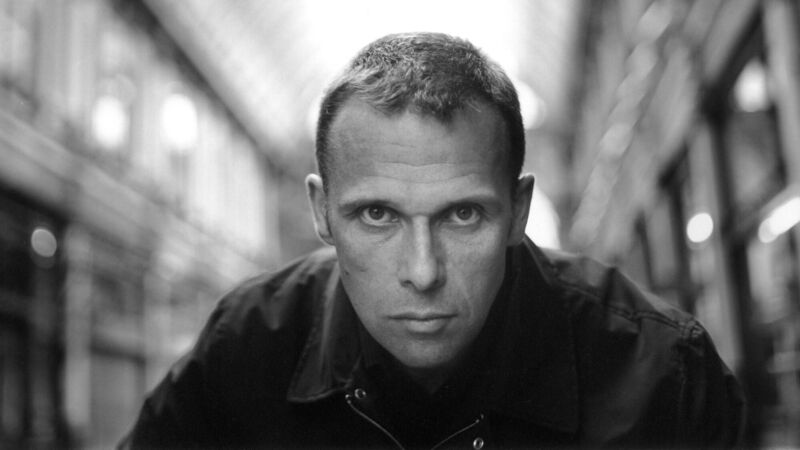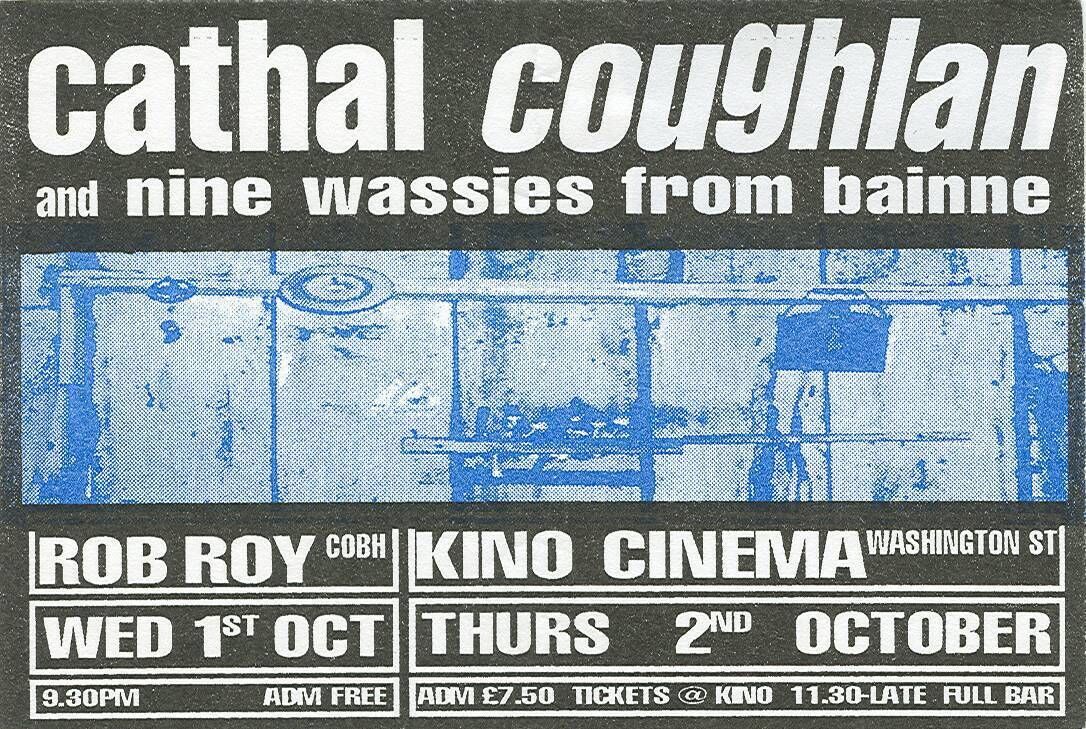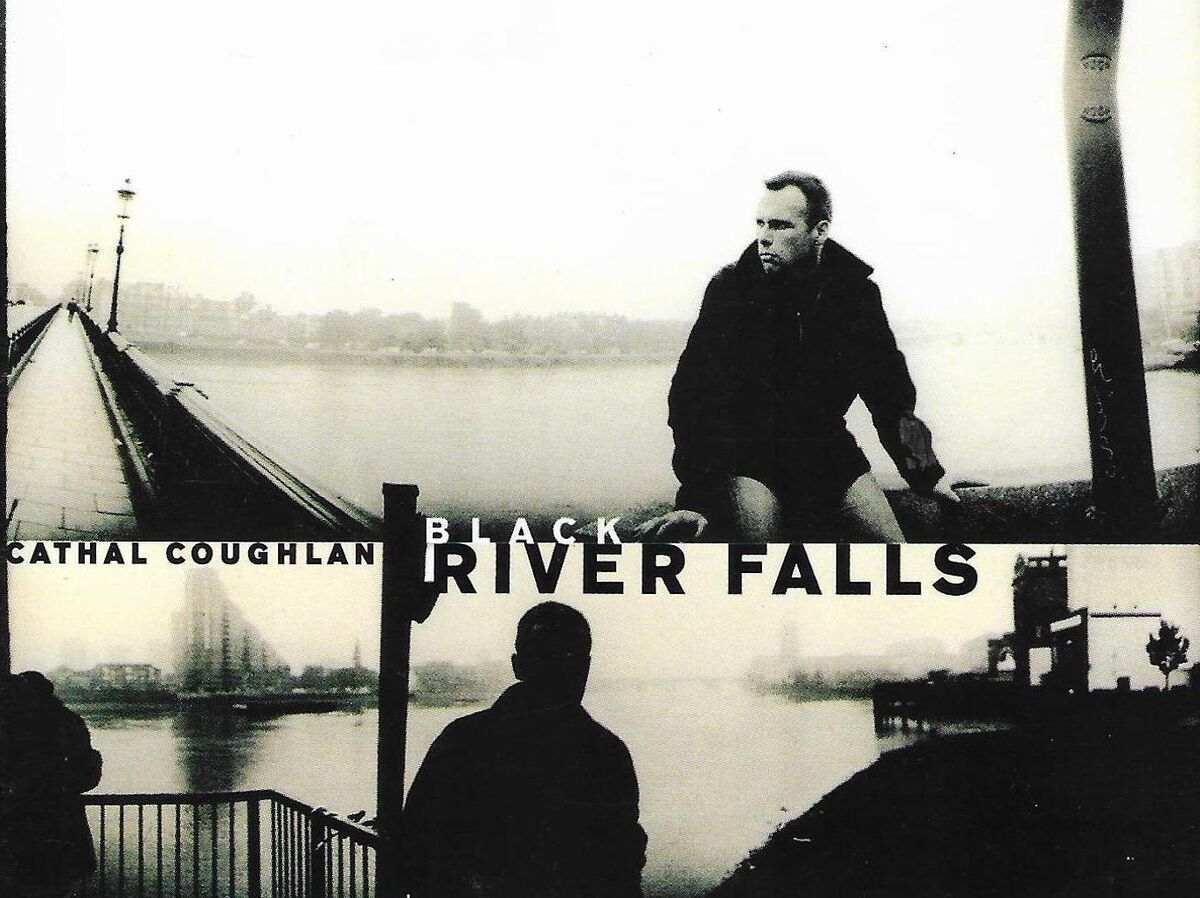B-Side the Leeside: Cathal Coughlan - Black River Falls

For Cathal Coughlan, Black River Falls was the first album where some of the musicians worked remotely, using email and CD-Rom to transfer music. Picture: Bleddyn Butcher
The Rob Roy pub on Pearse Square in Cobh was the improbable location for a significant moment in the career of someone often described as one of Ireland’s greatest living songwriters. Cathal Coughlan, the former Microdisney and Fatima Mansions frontman, hadn’t played live in over three years when he took to the microphone on Wednesday, October 1, 1997.
Around 40 people packed into the Rob Roy’s back room to witness what was essentially a live rehearsal for an upcoming Irish tour in which Coughlan was backed by Giordaí Ua Laoghaire’s Nine Wassies From Bainne. On the night the small crowd of friends, family and fans were treated to some new songs which would be released a few years later in 2000 on Black River Falls, a landmark album in a recording career that has spanned over forty years.
The Fatima Mansions had ground to a halt a few years previously but legal issues had prevented Coughlan from performing. “They were the first full-length shows I had done since 1994 because there was just all this business nonsense going on and I wasn’t able to perform new stuff in public at all because I was in certain contractual difficulties,” remembers Coughlan.
“I was trying to song-write my way out of trouble, it was just a vortex of nonsense that went on and on. That little tour with the Wassies was a godsend really, to just get out of that rut that I was in.” If the back room of the Rob Roy in Cobh marked a significant moment in Coughlan’s career, then so too was a concert in a slightly larger venue – the Queen Elizabeth Hall at London’s Southbank Centre. In the late 90s Coughlan became friendly with Hector Zazou, the French composer and producer, and performed at a multi-artist Zazou concert.
“He asked me to come and do something with his group, just to guest on one song but it was fairly improvised. This was at the Queen Elizabeth Hall – so it wasn’t trivial.
“The main singer on that show actually was Nina Hynes. I just sang harmony with Nina on one song really. From that I did another thing with Hector Zazou where I sang with Mimi Goese from [US art rockers] Hugo Largo,” recalls Coughlan.

These collaborative multi-artist concerts marked a sea change for Coughlan, particularly in how he used his voice. “I just wanted to situate myself in that sort of world, which wasn’t about yelling your lungs off so I evolved an exercise routine,” remembers Coughlan.
“I did it pretty much from a book, it would only be years late that I actually found a teacher and started doing it properly. It did bring dividends pretty quickly actually.
“Once I started taking care of it, I found it was like a different instrument really and I felt that learning to use it properly would open opportunities for me to collaborate with people and that proved to be the case.” The album that followed his enforced hiatus was Black River Falls.
“Creatively it was an important watershed because it lay the foundation for everything I’ve done since,” says Coughlan. “It’s the furthest I can go back into my back catalogue where I recognise the voice fully, because of the way I’m using it. The Mansions stuff, some of it is close, some of it is alien to me and Microdisney, obviously, is a whole other kettle of fish. So something clicked into place amid all the desperation of the preceding few years, in looking for direction.” That direction included working with new musical associates and composing songs which yearned for orchestral arrangements.
“Between the Wassies tour and the recording of Black River Falls I wrote some more stuff that really called for woodwind and strings,” says Coughlan. “I wanted to do something a bit more focused, with a bit more of a sort of classic pop type approach in places.”
The album’s title track is taken from the small Wisconsin town of Black River Falls. The town features in Michael Lesy’s 1973 book Wisconsin Death Trip. Lesy’s book juxtaposed late 19th Century photographs by Charles Van Schaick taken around Black River Falls with contemporaneous news reports to highlight the harsh life of European immigrants to the American rural Midwest - disease, death and mental illness are in abundance. Coughlan remembers that his friend, the film producer and director, George Seminara had sent him a newspaper article about Wisconsin Death Trip.
“It was influenced by the name of the place where all that happened, the seemingly random unexpected deaths. I just found the name evocative and I didn’t realise that it was going to become wider currency, or had been even in the 70s,” recalls Coughlan.
Rather than a comment on the content of Lesy’s book the title track reflected Coughlan’s personal circumstances at the time. “There was a bit of death going on around me at that point. My father passed away and that was a bit of a watershed because he was the first parent to go,” says Coughlan.
“Things were kind of sombre for a long time before he eventually passed away and for some time afterwards as well.” The album’s opening track is ‘The Ghost of Limehouse Cut’ a darkly comic tale of kidnap, ransom, mayhem and violence that has remained in Coughlan’s live repertoire.

“As I’ve sung it more over the years, the refrain at the end about ‘I’m a ghost, I don’t exist’, has come to mean something quite different,” says Coughlan. “I think I was getting at something about my own obscurity, but it wasn’t in protest it was more a reflection of my part in history of a whole lot of people who go to London and get lost in the throng. I think, subconsciously I was maybe getting at that, and certainly it’s what makes it still possible for me to sing it.”
If Black River Falls marked a change in direction for Coughlan it also marked a new method of making an album – recording remotely and exchanging files. “It was just beginning to be feasible, for example Stefan Rodesco in Paris had a Pro Tools rig in his house, he’s an orchestral player and arranger, that was great,” recalls Coughlan. “Stefan had a way of stacking up strings from just a few performers. That was a reachable way of doing it. There was no way I was going to be going into Lyndhurst Hall at AIR Studios with half the BBC Symphony or anything like that.
“What was not so great was having to get everything onto CD-ROMs, there wasn’t even DVD-ROMs at that point, and stick them in the post and hope that they weren’t going to vanish. Even without home recording getting to be as cheap and effective as it is now there were already less formal recording studio type places.
” In 1999 the advent of the internet meant that for the first time remote recordings could be shared with Coughlan. “Joe Gore, in Los Angeles, had a way of emailing his guitar parts - WeTransfer didn’t exist - involving some kind of upload facility that he had.”
Before our chat, had Coughlan listened back to Black River Falls for the first time in years. “There’s a sequence of the first four songs on the album and I don’t think I’ve ever recorded a sequence of songs that work as well together as a punch at the listener as that. They’re very different things and they’ve got different people playing on them in many cases.”
After that sequence comes one of the standout songs on the album, and of Coughlan’s career, the wistful ‘Payday’ with its longing refrain of “It’s payday up on Blarney Street, and the mystery returns”. “Probably my favourite thing off the album is ‘Payday’,” says Coughlan. “I think I really got to something there that I’m glad I got to once during my lifetime.”
Reflecting on Black River Falls, Coughlan is circumspect. “I feel like I was a babe-in-arms, I was forty then, I’m very proud of it, to be honest, it probably sounds a bit grim, but it managed to cover a lot of bases,” says Coughlan. “I can hear it’s not perfect, I can hear things I would do differently now, things I wouldn’t do at all, things I would leave out. In terms of the emotional range though it really stands apart from things I’d done before it, despite the adversity that led to it.”
- Cathal Coughlan released Song of Co-Aklan, his sixth solo album in 2021. Teilefís, his project with the acclaimed producer Jacknife Lee, recently released their first album, A h-Aon.


